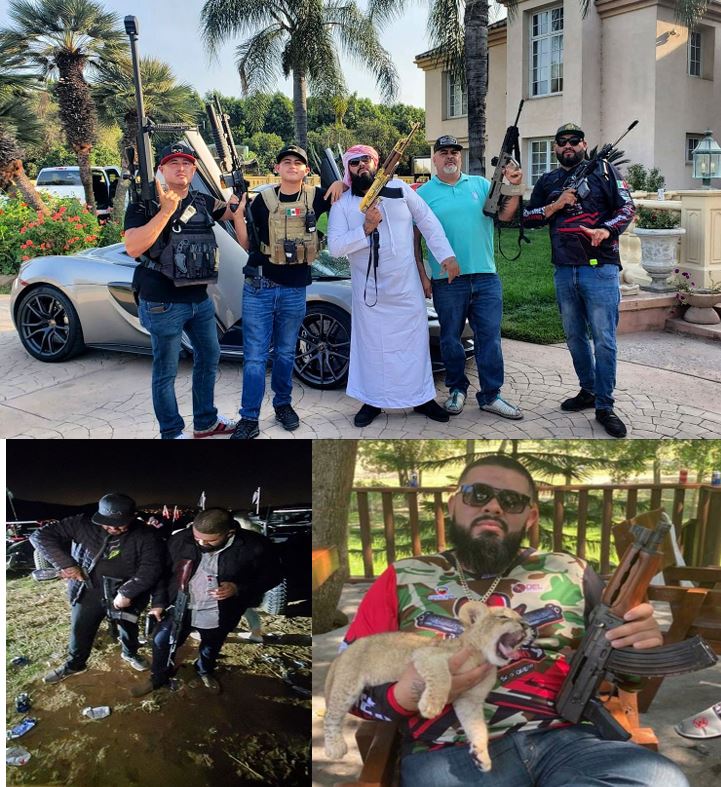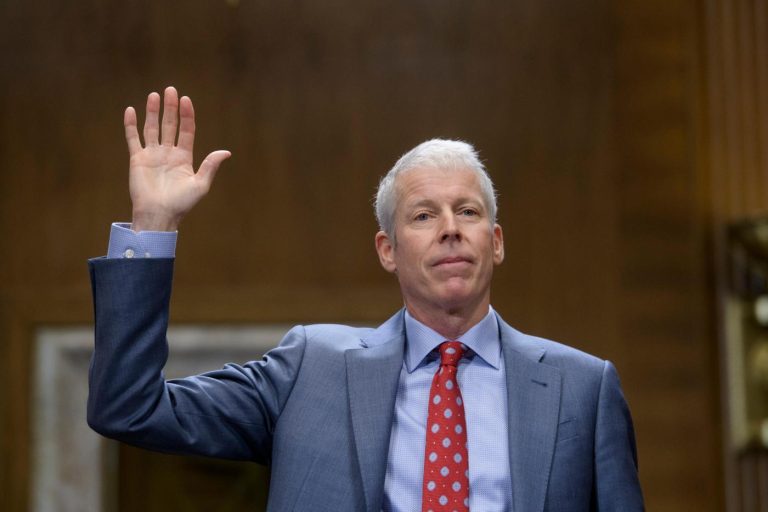When federal agents raided an Otay Mesa truck yard linked to the Sinaloa Cartel in 2020 they discovered more than $3 million in cash and more than 1,500 pounds of cocaine, as well as a tractor-trailer loaded with 20,000 rounds of .50-caliber ammunition, which is so powerful it can pierce a concrete wall, disable a vehicle or shoot down a helicopter.
Related Articles
Man suspected of assaulting victim with gun outside East Bay supermarket
California sheriff’s Trump assassination allegations ‘a lie,’ Las Vegas man says
California man gets 121 months in prison for selling illegal ghost guns, planning robbery of federal informant
Man killed in Antioch shooting
Man shot by Oakland police sergeant had been sentenced to house arrest for illegal gun possession 2 days earlier
Prosecutors alleged that ammunition was headed for Mexico, where drug trafficking groups have used .50-caliber machine guns and sniper rifles to try to outgun each other, as well as government security forces. Specifically, prosecutors said the ammunition seized in Otay Mesa was headed to a Sinaloa Cartel faction with deep roots in San Diego that was locked in a bloody internal power struggle with a rival bloc.
On Monday, the man who procured the 20,000 rounds of ammunition for the cartel, 39-year-old San Bernardino County resident Keith Octavio Rodriguez Padilla, was sentenced in San Diego federal court to 19 years and six months in prison.
Rodriguez, who prosecutors said used the moniker “Taliban,” pleaded guilty in 2023 to four federal conspiracy charges involving cocaine importation and distribution, money laundering and firearm and ammunition smuggling. He was prosecuted as part of a broader investigation into the Valenzuela Transnational Criminal Organization, which prosecutors described as “a significant component” of the Sinaloa Cartel.
“(Rodriguez) played a vital role supplying high-powered military grade ammunition to the (Valenzuela) TCO,” Assistant U.S. Attorney Matthew Sutton wrote in a sentencing memorandum.
Federal agents raided an Otay Mesa truck yard in November 2020, discovering cash, drugs and some 20,000 rounds of .50-caliber ammunition. Keith Octavio Rodriguez Padilla admitted that he procured the ammunition for a faction of the Sinaloa Cartel. (U.S. Attorney’s Office via U.S. District Court filing)
The probe of the Valenzuela organization, dubbed Operation Baja Metro, is an offshoot of Operation Narco Polo, an even larger and longer-running investigation of the Sinaloa Cartel. Prosecutors have charged hundreds of people linked to those investigations and secured guilty pleas from members of the Valenzuela family who have admitted to leading the crime group.
Authorities say that in 2020, Jorge Alberto Valenzuela Valenzuela and his sister Wuendi Valenzuela Valenzuela, a Chula Vista restaurateur, stepped up to lead the organization after the slaying of another brother who was the logistics and financial operator of a money laundering network for longtime Sinaloa kingpin Ismael “El Mayo” Zambada. Since the 2016 arrest of Zambada’s longtime partner, Joaquín “El Chapo” Guzmán, the Valenzuela organization and other factions of the Sinaloa Cartel loyal to Zambada have been locked in a vicious internal war with factions loyal to Guzmán’s sons, collectively known as Los Chapitos.
Defense attorney Megan Foster acknowledged in a sentencing memorandum that the Valenzuela faction of the cartel “is incredibly dangerous and responsible for unspeakable acts of violence, money laundering, and drug trafficking on both sides of the border.” But she argued that Rodriguez’s only role was sourcing ammunition for a contact who he only later learned was a “heavy hitter” in the cartel.
“Little did he know that said contact was extremely high up in a TCO being investigated by federal law enforcement officials,” Foster wrote. She said Rodriguez’s guilty plea to the cocaine and money laundering charges was based exclusively on that co-conspirator’s criminal activities, not any actions Rodriguez personally engaged in.
“Mr. Rodriguez never bought or sold drugs for the TCO,” Foster wrote. “He never laundered or transported any money for the TCO … He never committed a violent act on behalf of the cartel. He never built tunnels or flew planes or drove trucks for the TCO.”
But Sutton urged U.S. District Judge Andrew Schopler to not take Rodriguez’s conduct lightly, and the U.S. Attorney’s Office said in a statement that Rodriguez and his co-conspirators supplied the Valenzuela organization with .50-caliber rifles, submachine guns, grenade launchers and “assault style rifles,” as well as tens of thousands of rounds of ammunition.
“The majority of firearms and ammunition trafficked into Mexico — including high caliber and assault weapons — are shipped from the United States,” Sutton wrote. “… These weapons and ammunition empower drug cartels to intimidate local communities, challenge state authority, and expand their deadly drug trade back into the United States. Tragically, some of these weapons and ammunition have been used against Mexican security forces bravely seeking to capture cartel leaders.”
Another man who admitted to supplying guns to the Valenzuela organization was sentenced in 2023 to 15 years in prison. Rodriguez’s lengthier sentence was based in part on his criminal history, which included two domestic violence convictions and qualified him as a “career offender.”
The leaders of the Valenzuela organization have pleaded guilty but not yet been sentenced. Jorge Valenzuela is scheduled to be sentenced in April while Wuendi Valenzuela is scheduled to be sentenced in June.












